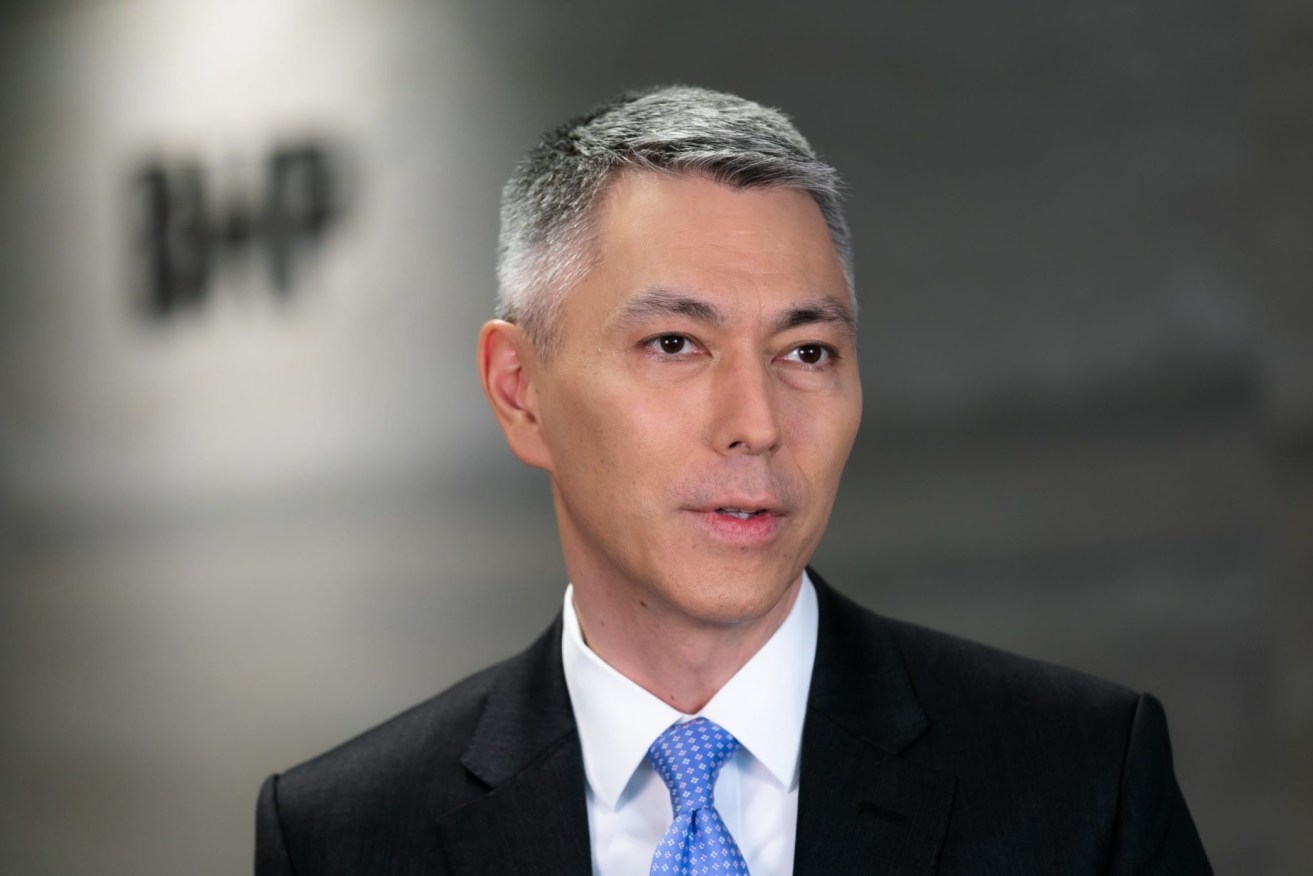BHP profit plunges by 33 per cent, reveals plan to sell off Qld coal mines
Mining giant BHP is selling two Queensland coal mines as higher royalties bite and aims to recoup costs in NSW after government intervention in energy markets.

BHP chief executive Mike Henry. Image supplied.
BHP is seeking buyers for the Blackwater and Daunia metallurgical coal mines as the significant shift in state royalties “increases our risk and worsens the economics of these mines”, chief executive Mike Henry said on Tuesday.
He said BHP will also be pursuing the NSW government to recoup the cost of thermal coal production for domestic users from the Mt Arthur mine after the state reserved supplies for power generation.
“The intervention is going to cost money,” Mr Henry said during a conference call.
He welcomed Australia’s improved trade relationship with China but declined to say whether BHP had resumed coal shipments, after pivoting sales to other markets during the export ban.
“We’ve been buoyed by the green shoots that we’ve seen since the start of this calendar year,” he said.
“There’s a lot there that’s giving us confidence that we’ll see an acceleration in Chinese demand.”
Mr Henry said BHP hadn’t changed its overall outlook on demand for metallurgical coal, used for making steel, but was consolidating its portfolio to retain the highest quality assets.
BHP is growing iron ore production from record levels in the Pilbara and expanding in copper, uranium and nickel with the acquisition of OZ Minerals on track to be implemented by early May.
The global iron ore leader reported an underlying attributable profit of $US6.6 billion ($A9.6 billion) for the six months to December 31, down almost a third (32 per cent) from a year earlier.
BHP shares fell 1.9 per cent or 91 cents to $A47.55 in morning trade.
Profit from operations in the half fell more than a quarter (27 per cent) to $US10.8b ($A15.6b) on lower prices for iron ore and copper, higher royalties paid on coal in Queensland and inflation.
But this was offset by record iron ore production and higher prices for coal and nickel.
Earnings before interest, taxes, depreciation and amortisation (EBITDA) was $US13.2b ($A19.1b), down 28 per cent.
Net operating cash flow was $US6.8b ($A9.8b), down 41 per cent.
Chief financial officer David Lamont said the largest impact was lower iron ore prices and inflation, including the high cost of diesel.
But BHP was positive about the demand outlook in the second half of FY23 and into FY24, with strengthening activity in China offsetting weakness in Europe and the United States.
In Western Australia, BHP is planning to lift iron ore production to 330 million tonnes per year as the world’s lowest cost major iron ore producer.
“We are seeing ongoing positive exploration results from Oak Dam, which provides growth potential for our copper business in South Australia,” Mr Henry added.
BHP reported it was on track to meet its 2030 target on operational greenhouse emissions.
Capital expenditure on operational decarbonisation is expected to be around $US4b ($A5.8b) up to the 2030 financial year to align with 2030 and 2050 targets and maximise shareholder value, BHP said.
BHP declared a fully franked interim dividend of US 90 cents a share, down 40 per cent from last year’s record return to shareholders.












